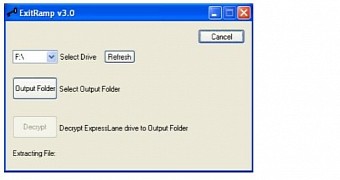WikiLeaks has just revealed another hacking tool developed by the CIA, but this time the agency wasn’t targeted companies or consumers in the United States, but other intelligence partners like the NSA, the FBI, and the Department of Homeland Security.
Called ExpressLane, the project was created to help the CIA access information that other intel agencies were refusing to share, like biometric data.
The CIA was providing partner agencies with technical support services for a biometric collection system, and as part of the collaboration, other intel departments, like the NSA and the FBI, agreed to share biometric data with the CIA. But in case any of these partners refused to provide all the data they collected, the CIA had a backup plan.
ExpressLane was delivered as a software update for the said biometric data collection solution, so whenever the update was deployed, it also checked for any information the agency in question was hiding.
Data stolen on USB thumb drive
WikiLeaks says the update didn’t make any changes to the program itself, a thing that would have triggered security solutions or raised concerned among IT engineers, but collect the data on an USB stick and let agents inspect it at a later time.
Furthermore, ExpressLane was developed from the very beginning to be undetectable, but should any intel partners find something suspicious, CIA agents were able to launch a self-destruction process that would have compromised the system completely. This required CIA agents to personally restore the system, thus removing any traces and also look for the data that wasn’t shared.
“The core components of the OTS system are based on products from Cross Match, a US company specializing in biometric software for law enforcement and the Intelligence Community. The company hit the headlines in 2011 when it was reported that the US military used a Cross Match product to identify Osama bin Laden during the assassination operation in Pakistan,” WikiLeaks explains.
No official statements were provided by the CIA, but it usually happens when WikiLeaks reveals new hacking tools, the agency is likely to remain completely tight-lipped this time as well.

 14 DAY TRIAL //
14 DAY TRIAL //